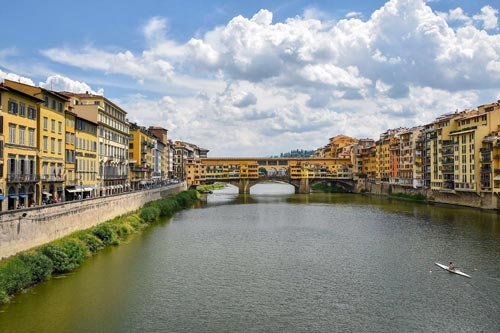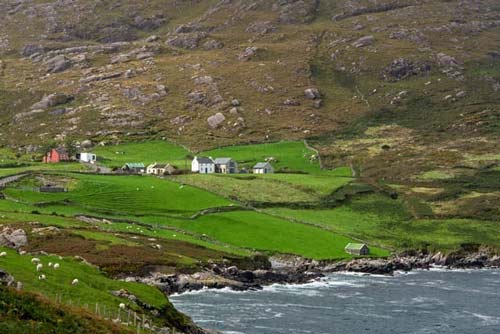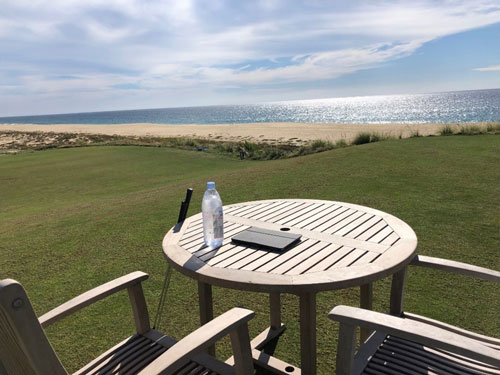
Last week I got a text from my contact in Portugal.
He was on his way to Istanbul, Turkey and I suggested he meet up with my scout on the ground there, Paul O’Sullivan.
Two days later they send me a selfie together from Northern Cyrus, a country that is only officially recognised by one other country in the world, Turkey.
That’s the way we roll…
We are plugged in with a network of international real estate scouts and investors. We leverage each other’s contacts and research. We invest together…
I immediately got excited by what these two would find. Nothing like a visit to a place with a demilitarized zone to get my attention.
The thing about places like this is that the perception often doesn’t match the facts on the ground. When they don’t you could be on to a winner…
Let’s hear what Paul found…
Ronan McMahon
***
Bargain Homes in the Country That Doesn’t Exist
By Paul O’Sullivan
I wake up with a pounding headache and spot a wad of $900 on my bedside locker.
I have no idea where it came from…
The past 24 hours are a blur, but I quickly jog my memory.
A Mediterranean island. U.N. soldiers. Armored tanks. Golden-sand beaches. And—this must be it—a casino with an endless supply of drinks on the house.
It’s been a successful scouting trip on multiple fronts…
Not only does it look like I’ve won big, but I’ve discovered a destination with a lot of untapped potential, where you can find some of the lowest priced luxury beachside real estate in Europe…if you’re willing to take a gamble on a place that is far from a sure thing.
I’m talking condos just a stroll from the beach from $89,000…and luxury four-bed penthouses with large terraces for just $351,000…
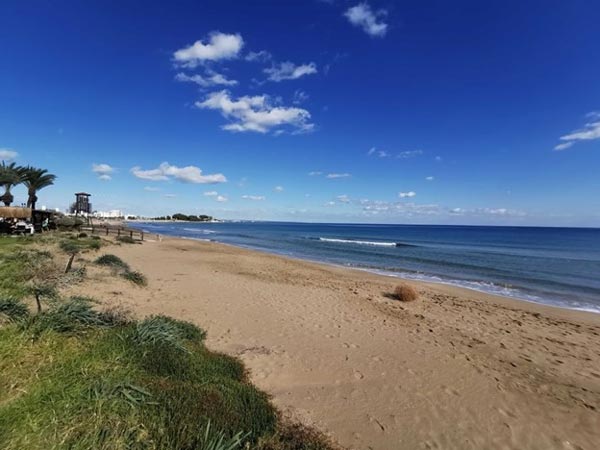
Two days ago, I touched down in the Turkish Republic of Northern Cyprus. It’s a country that, according to the rest of the world, does not exist. However, the facts on the ground tell a different story—the one I’ll tell you now.
First, a little background.
The island of Cyprus sits in the Mediterranean just south of Turkey. Thanks to its strategic position between Europe, the Middle East, and North Africa, it has a long history of conquest and occupation.
It was settled by Mycenaean Greeks over 3,000 years ago. And subsequently occupied by Assyrians, Egyptians, and Persians, the armies of Alexander the Great, the Eastern Roman Empire, the Arab caliphate, the French, and the Venetians.
In the 1500s it was taken over by the Ottoman Empire, who ruled for over three centuries. This is where the political issues that plague the island today started.
In brief, following World War I, Britain annexed Cyprus, ending the rule of the Turkish Ottomans. However, because of British colonial policies, animosity grew between the two ethnic communities of Greeks and Turks.
Nationalist movements formed. On the Greek Cypriot side, EOKA (Ethniki Organosis Kyprion Agoniston) aimed to integrate the island with Greece. Meanwhile, the Turkish Cypriots wanted taksim, partition between Greece and Turkey.
Following the end of British rule in the 1960s, tensions began to erupt into violence, culminating in the Turkish invasion of the island in 1974.
Since then, the island has been partitioned into north and south, and living in relative peace. The Republic of Cyprus in the south is an EU and NATO member, while the Turkish Republic of Northern Cyprus is technically within an EU border, but not recognized as a legitimate state by any country except for Turkey.
Between the two sides is the United Nations Buffer Zone, a demilitarized area that extends about 110 miles across the island and has been patrolled by the United Nations Peacekeeping Force for over 50 years.
The town of Famagusta is on the northern side, right at the edge of the zone. This area, known as Varosha, was once home to some 39,000 Greek-Cypriots and swarms of tourists. Elizabeth Taylor and Richard Burton vacationed here, and the Swedish band Abba gave one of their first performances here.
Now it’s an eerie place. The buildings sit empty and abandoned, an overgrown shell of their former glory and a glaring reminder of the island’s division.
Yet, despite all this, Northern Cyprus doesn’t feel exceptionally different from any other Mediterranean country. Move away from the border, and you could easily mistake it for a Greek island.
Palm trees line long stretches of golden-sand beach. Little beachside kiosks, now mostly closed for the season, sell coffee and smoothies. There are water parks, luxury hotels, seafood restaurants, and casinos that would put Las Vegas to shame. The towns are lined with cafes and restaurants serving seafood, mezes, Turkish and Greek cuisine, as well as a few familiar brand-name stores.
Back from the coast the landscape is flat, green, and somewhat featureless, with occasional olive groves and distant mountains to the west, along with a scattershot of villas and apartments along the roadways.
Still, there’s plenty charm to be found. In the town of Famagusta you’ll find hundreds of historic buildings from Byzantine to French Gothic and Italian Renaissance. A huge defensive wall and castle constructed by the French Royal House of Lusignans in the 14th century surrounds the Old Town, and a 13th-century Gothic church (now a mosque) takes pride of place in the center.

Northern Cyprus attracts a mix of international visitors. Germans and Scandinavians come in the summer. Russians, Bulgarians, and Middle Easterners come to invest and to live. And more recently it’s been popping up on the radar of British retirees, looking for a non-EU alternative to Spain and Portugal.
And that is the major attraction of this little corner of the Mediterranean. It’s remarkably affordable. It offers good infrastructure, it’s welcoming, has a developing tourism industry. And it’s all at a fraction of the cost of living the Mediterranean lifestyle elsewhere, thanks in part to the weak Turkish Lira.
In terms of real estate, you’re looking at prices that are half or even a third of the price you’ll pay just across the border.
In Iskele, on the eastern coast, you can own a new one-bedroom apartment in a luxury community, and about a 10-minute walk from one of the nicest stretches of beaches on the island, from $ 106,000.
For a large four-bedroom penthouse, with a sizable terrace, I was quoted £260,000 ($351,000), but I figure you could easily negotiate that.
Further up the coast I checked on a new beachfront community where prices started from £66,000 ($89,000) for studio apartment and went up to £760,000 ($1,025,800) for a frontline three-bedroom villa with a pool.
Just 30 seconds back from the beach, similar villas (minus the pool) were listing for £360,000 ($485,905).
I shot a little video from the beach, but note that my rough conversions from pound sterling to dollars are off the cuff and not accurate.
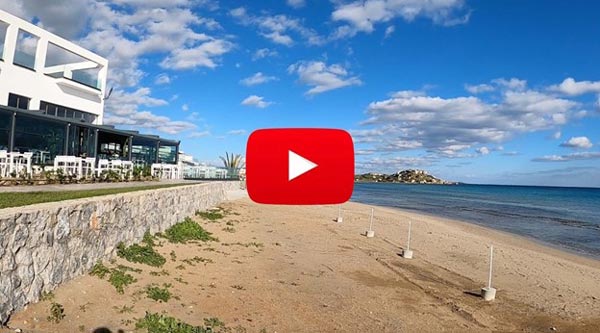
You can get something cheaper than this for condos close to the beach in Northern Cyprus, but you really need to be sure of who you’re dealing with. One of the major concerns when buying here is the title deed. I’ve heard of people buying condos with no deed at all.
Deeds in Northern Cyprus are issued by the Turkish Republic of Northern Cyprus and are guaranteed under the TRNC constitution. However, should Cyprus ever reunite, which many Cypriots would like to see happen, you need to be sure that your deed is protected.
For instance, if your property was owned by a foreign national or a Turkish Cypriot prior to the division of Cyprus in 1974, your title deed won’t be disputed. However, if your property sits on land that was owned by a Greek Cypriot before 1974, it requires an “Exchange Title Deed.” These were issued by the TRNC government post 1974 to Turkish Cypriots who waived their rights to their abandoned land in the south in “exchange” for abandoned Greek Cypriot land in the North.
Yet, even with an “Exchange Title Deed,” ownership could still be disputed, as the European Court of Human Rights has ruled in a number of cases that owners of property in Northern Cyprus before 1974 continue to be regarded as the legal owners of that property.
Hence, when buying in Northern Cyprus you need to exercise extreme caution.
Another big consideration is air access. Right now, it’s not difficult to cross the border between the South and the North. Greek Cypriots often cross the border to get their groceries cheaper or to visit a Greek Orthodox church. And so, you take one of the many international air routes into Cyprus via Larnaca International Airport and simply cross the border.
On the other hand, if you want to fly into Northern Cyprus directly, your options are limited. The only way to enter the North by air is to travel via Turkey, which means you’d need two stops from North America. If the border ever closed, as it did briefly during the pandemic, traveling via the Republic of Cyprus would no longer be an option.
Still, even with all this uncertainly, the low cost alone could make it worth the risk. Northern Cyprus feels safe. Tourism is established here, but there is still a lot of room for growth in terms of amenities, demand, etc. (A new terminal yet to open at the North’s Ercan Airport aims to bring in flights from the U.K.)
The political situation between the North and South seems to be a stalemate. At talks last year in New York, the leaders of each country agreed that there wasn’t anything left to discuss.
Yet, economically, Northern Cyprus’ dependence on Turkey is proving detrimental. International embargos, the falling lira, and isolationism are driving calls for reunification amongst Northern Cypriots. But the trend is more towards increased control from the Turkish government in Ankara, with some fearing a full annexation.
Right now, everything about Northern Cyprus seems speculative and up in the air. Risk averse investors should stay clear. Then again, it’s situations like this that mark some of the best times to buy. And in Europe, you won’t find another one like it.
Ronan says: What a fun adventure. In truth, I would need to expect at least a 10X return to take a punt on a title that might not hold up to scrutiny. That’s why I haven’t got excited about Cuba. That’s why I don’t see myself investing in Northern Cyprus soon. In particular when we have such strong opportunity elsewhere.
However, Paul will keep the reports coming. He’s certainly whetting my appetite…and I’m enjoying the vicarious adventure.
